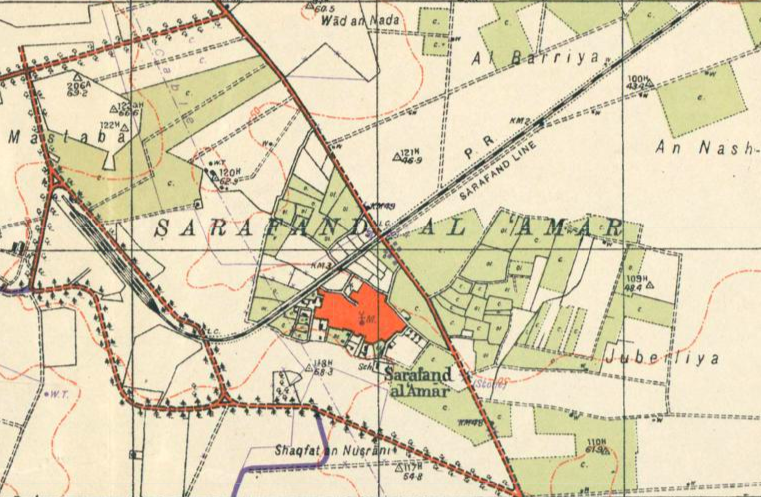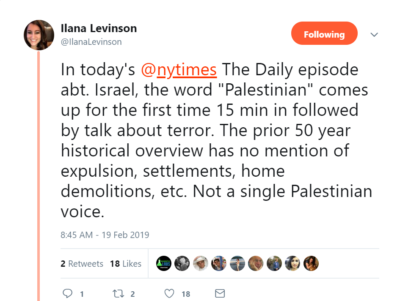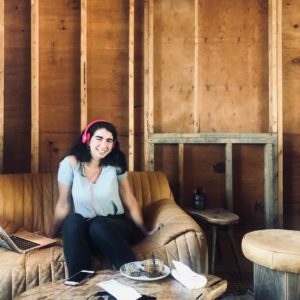Media representation of Gaza usually falls into one of two categories. There are programs covering the facts and figures: KALW’s “Gaza Corner” comes to mind, a weekly news program reported by foreign correspondents. The second category is the generalizing documentary project: think Ai Weiwei’s Human Flow, which employs Gaza as a metaphor in a more universal argument about refugees (in a tragic twist of fate, Yasser Murtaja, who filmed all the Gaza scenes in Weiwei’s film, was killed by the Israeli military).
These two camps both have a huge issue of representation: they tend to render Palestinians as passive witnesses torn between Israel and Hamas, or ignore them completely. Where are the Gazans taking fate into their own hands?
Unsettled, a podcast by Emily Bell, Asaf Calderon, Max Freedman, Ilana Levinson and Yoshi Fields, just dropped a new series: “Gaza.” Unsettled re-centers the Israel-Palestine “debate” by showcasing the lived experiences of Gazans and their stories of resistance.
Episode 1, “The Great March,” opens with with the voice of Donald Trump. In audio from 2017, he proclaims that the US would recognize the “holy city” of Jerusalem as Israel’s legitimate capital. A Trump and Netanyahu alliance exposes both parties’ investment in militarized borders, yet Trump’s union with Israel has created what some call an “existential crisis” in Jewish liberal discourse.
As it becomes more mainstream to address Trump’s border practices as human rights violations, this standard does not hold when addressing Israel’s border violence. The producers of Unsettled remind us what is at stake in these debates: the lives of Gazans.
In May 14, 2018, the US embassy in Jerusalem opened, sparking controversy from the international community and coinciding with the Great March of Return, a protest organized by Gazans that was met with severe violence from Israel. Amnesty International reports that the Israeli military killed 150 protestors, with as many as 10,000 injuries.
This Saturday will be the one-year anniversary of the beginning of the march. Unsettled reminds us to look back with a renewed understanding of the march’s potential: transforming how outsiders understand the Israeli occupation. Unsettled retells the story of the protests, but from the critical perspective of Gazans who organized and participated in them. Audio often feels like the most powerful way of revisiting and remembering. In this series, the voices of Gazans reconjure the stakes and meaning of their struggle.
Episode 1 of Unsettled contains a powerful truth: the Great March of Return happened because of grassroots organizing. This may come as a surprise to listeners who heard only that Hamas claimed credit for the protests. Israel accepted this claim and used Hamas as an excuse to legitimize the IDF’s violence against protesters. Featuring a powerful interview with Isam Hammad, one of the organizers of the march, the producers of Unsettled offer a reoriented perspective. Hammad reminds us, “We just wanted to walk back.”
One of the most compelling interviews is with a student, Zahra. Her voice hits home the ways that state terror transforms those who are exposed to it.
ZAHRA: Going to the march is a good thing. Even if you stayed at the back of the march, it doesn’t matter. What matters is that you went … I couldn’t imagine like – the idea of running from the live bullets is scary in itself. But I’m not regretting going to the march. I mean, after going to the march I just sat with myself and started to think, what did I gain from going to the march?… At that time I couldn’t figure out, but now I can say yes, I am a new person now. And running from the live bullets made me stronger and I think there will be no hardship destroying me in the future, because for God’s sake, I faced death.
Unsettled reminds us, above all else, to listen to Gazan voices. It also delves into the internal transformations of Israelis. Episode 2 of “Gaza” explores how Asaf Calderon, an Israeli reporter, un-learned the glorified history of Israeli independence he heard growing up. Recently, The Jerusalem Post reported that 70% of Jews in Israel think the occupation of Gaza is “immoral.” As Israeli citizens transform their views, a shifted perspective might mean everything for Gazans.
Most of “Gaza” is still due for release. I am so excited for the rest of the 8-part series, so I reached out to three of the producers of Unsettled to quench my curiosity and illuminate their process.
ARIELLA MARKOWITZ: How do your identities as Jewish journalists shape the way you chose to tell Palestinians’ stories?
MAX FREEDMAN: First of all, when planning each episode, we always ask ourselves which perspectives we’re centering, who we’re turning to for information, and why. Because Palestinian voices are mostly absent from Jewish communal life in the diaspora, we expect that a lot of the information and stories we share on Unsettled are going to be uncomfortable or unfamiliar to our listeners. We’re very consciously using our position as Jews to try to ease that discomfort just enough to open the door to new perspectives and ideas. What’s great about audio is that after opening the door, we can move out of the way and let our guests speak for themselves.
ILANA LEVINSON: I’d say we come from the perspective that there is clear injustice happening every day in Israel-Palestine, and that one party – Israel – clearly has more power. We try not to fall into the trap of falsely equating “both sides” of “the conflict.” But we know that the falsehoods about Palestinians that exist within the Jewish community often stem from fears that the right-wing cynically capitalizes on to maintain and further entrench the status quo. We can’t pretend those fears don’t exist. So we don’t dismiss those arguments and talking points. We confront them head-on.
ARIELLA: What is the most surprising or unsettling (ha) realization you made while researching for the podcast?
ILANA: For me, the most surprising realization was just how many people I knew who really wanted to engage with this topic. Because I grew up in an ardently Zionist community, I assumed that all of my friends still held enthusiastic “Israel right or wrong” ideas. I was nervous to tell them about it. But pretty quickly after releasing the first few episodes, I got texts and phone calls from friends and family saying in some form or another that they always wanted a way to engage but didn’t have anywhere to go for information they could trust. It made me realize how many people in the Jewish community are just waiting to be given permission to talk about these issues.
ARIELLA: Why did you choose the podcast format for this story?
MAX: Podcasts are really intimate, which I think is especially helpful for what we’re trying to do: explore big political questions about Israel-Palestine on a human scale. I also think part of the reason factual information and critical viewpoints on this issue don’t penetrate diaspora Jewish communities is because people are afraid of being ostracized by their family and friends. Listening to a podcast is a very private experience, so we hope Unsettled can be a sort of safe space for people who want to learn. We also don’t want to mediate too much, and audio allows our guests to speak for themselves.
ARIELLA: In episode 1, Ilana mentions the issues the Jewish community has when talking about the occupation of Gaza. What is it like to be taking on a huge subject at a time when institutional Jewish community and young American Jews are often at odds on issues relating to Israel-Palestine?
MAX: You’re right that the institutional Jewish community and young American Jews are often at odds, but these conflicts are increasingly public, meaning we’re getting less afraid to air our community’s dirty laundry (which is a good thing). I also think that the break is not so cleanly along generational lines as it’s often portrayed. I’ve met a lot of older non-Zionist and anti-Zionist Jews who have been working on this for years, but I think the Trump-Bibi love affair has opened the eyes of many liberal Zionists from my parents’ generation to the rightward lurch of Israeli politics and as a result, they’re becoming more open to critical viewpoints like those expressed on Unsettled. Even so, I produced our recent episode about Hamas, and I was really nervous that Jewish Twitter (not to mention law enforcement) might come for us just because of the subject matter. So far, nothing unusual, although I often think we’ll know we’ve “made it” when the trolls come out. I know this work is not easy for many Jews who hold beliefs that run contrary to institutional consensus. I’m lucky to have a really supportive family, even when we disagree on some of the finer points.
ILANA: I think the podcast medium allows a little bit more freedom to be open and vulnerable when challenging the Jewish community about Israel. I don’t think I take the same risks as activists and public figures in the Jewish community who often put their jobs on the line to do their work. For me, Unsettled isn’t about convincing someone on “the other side” — it’s really for people who are questioning Israel’s policies and need somewhere to find information, and it serves as a resource for activists. If people don’t want to hear the stories we’re telling, they don’t have to listen. Additionally, after being told for years that there was a certain way I had to talk and think about Israel to be a “good Jew,” getting to speak to a Jewish community that wants to listen to the stories we tell is very liberating.
EMILY BELL: It can feel daunting at times to delve into a topic that is so often ignored and is rarely discussed with nuance. Our team has spent a lot of time debating which stories about and from Gaza we’re going to tell, since we know that we’re just scratching the surface of all the potential stories. It feels crucial to be intervening in the discourse around Israel-Palestine through a podcast. Listening to a story can be a powerful political action in and of itself, especially if it’s one that challenges information and messaging that is assumed not only to be the status quo, but the permanent status quo. And while at times Jewish institutions and young American Jews may be at odds about Israel-Palestine, one of the things I’ve seen are young Jews creating alternate spaces in which to be Jewish, on their own terms. Unsettled is helping to bring people into a growing community where Jews of all ages can show up fully as themselves, without having to stay silent about their politics or the occupation. Whether you’re tuning in to Unsettled for the first time or have been active around Israel-Palestine for years, there’s always something new to learn.
ARIELLA: Asking for a friend: What advice would you give to young journalists who feel passionate about tackling big political issues?
ILANA: Someone has to do it – no better person than you.
EMILY: Try to get a sense of who else is making media about that topic and the individuals, organizations, and policies that are driving news around it. Familiarize yourself with the landscape and ask for help from others.
ARIELLA: How do you hope Unsettled will change the conversation about Gaza?
MAX: Malak Mattar, an artist whom Emily interviewed for an upcoming episode, put it best: she doesn’t want people to “think of Gazans [only] politically, and forget the truth: that Gazan people are people. They have dreams, they have hobbies, they have talents…” Each episode of our series so far has focused on a hot-button political issue: the Great March, the Nakba, Hamas, and the blockade. But we’ve tried to look at each topic from the point of view of people living in Gaza who are so much more than their politics or their suffering. The best part about doing this series has been the opportunity to get to know the individuals we’ve had the privilege of speaking with. Maybe this is really basic, but I really hope you, the listener, get a sense of these people as people (to borrow from Malak) – and I hope you get some factual information you can use to argue with your uncle when he tries to justify the status quo.
Featured image courtesy of unsettledpod.com.


